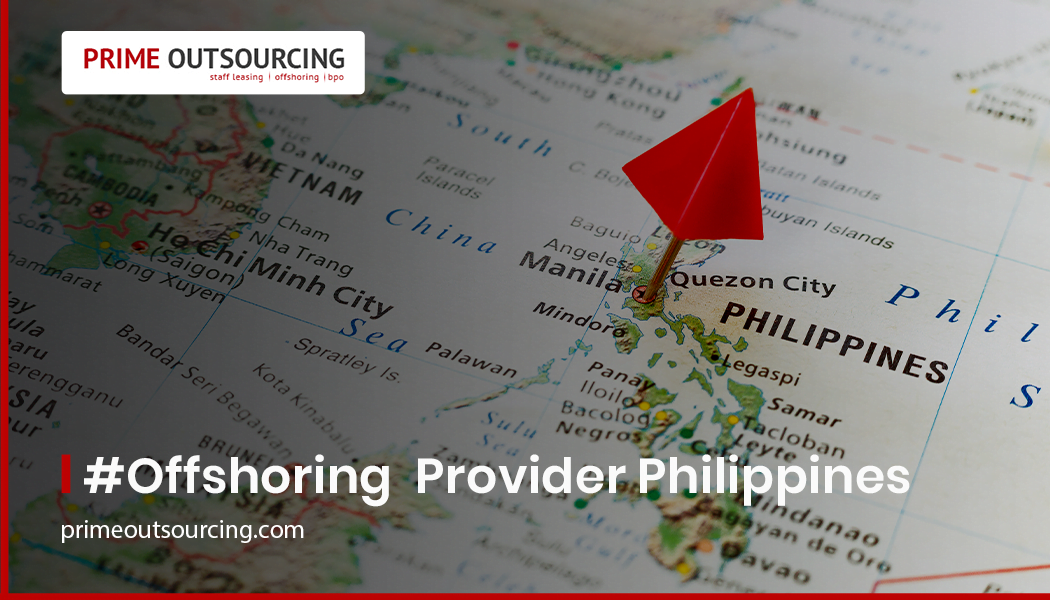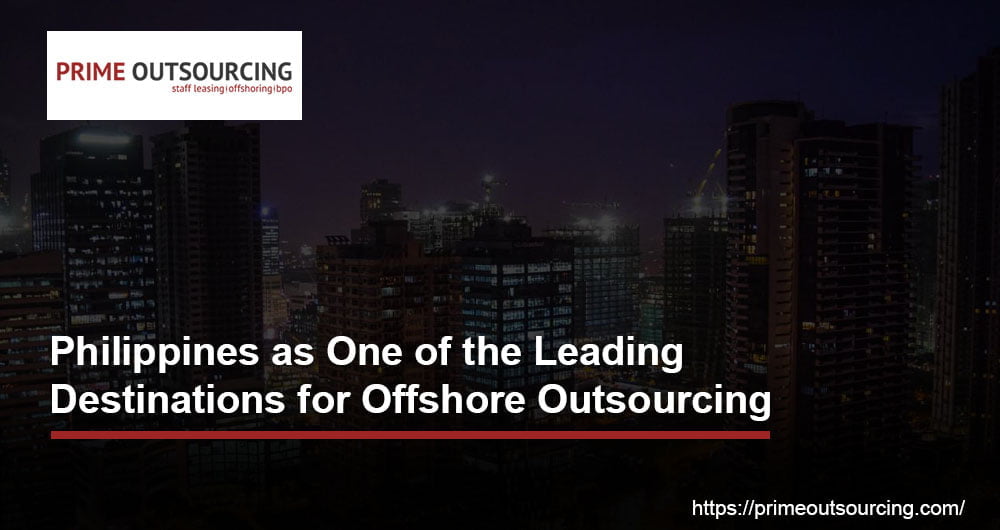This is why the Philippines is the Second Top Globalization Destination among the Top 50 Digital Nations, according to Tholons.
In choosing a place to do business, a wise choice would be the Philippines, the second top globalization destination. The hallmark of its economy is advancing in developed telecommunications and transportation. The Philippine business process outsourcing industry has been around for over 25 years since its inception in 1992. Since then, industry-wide revenues have increased. The Philippines, with over 1.15 million Filipino workers in the industry, has attained global competitiveness.
Accenture was the first company in the Philippines to outsource. At present, the company has over 50,000 outsourced Filipino employees. In addition, the foreign company also remains on the top list of the primary business process outsourcing companies in the Philippines.

What makes the Philippines a great place to outsource?
Placing second on the list of globalization destinations, the Philippines’ low labor costs and affordable rental rates make it a great place to outsource a business. Besides that, Filipino people are known to be flexible with their work hours.
Most Filipinos working in the industry within Metro Manila are used to shifting schedules. Though there are instances where it is required of them to work during holidays, they make sure to cater to their client’s needs and their employer’s requirements. The cost of doing business in the Philippines is relatively low compared to other countries without the quality of service being compromised.
How Outsourcing BPO Companies in the Philippines Started
Let us give an overview of some notable events that have happened in the Philippine Business Process Outsourcing industry:
1992— Accenture was founded by Frank Holtz. He then outsourced in the Philippines with his company’s work services, offering management consulting and professional services all over the globe.
1995— The Philippine Congress passes the Special Economic Zone Act, which provides tax breaks to foreign investors.
In 1997, the Philippines also started another type. Sykes established the first multinational BPO company here in the country that is solely focused on inbound calls.
1999— During this year, Jim Franke and Derek Holley founded eTelecare.
2000— Over 0.075 of our country’s GDP was said to be from the said industry.
In 2005, 3% of the global BPO market was reported to be from the Philippines.
2010— It was reported that the industry has over 525,000 call center agents and has created about $8.9 billion in revenue. Given this, it shows that the country is indeed becoming the world’s BPO capital.
In this recent year, annual growth of about 17% was achieved by this sector. These notable occurrences serve as living proof why the country has remained at its peak when we speak of this particular type of industry.

How globalized is the Philippines using the index of globalization?
According to the Swiss Institute of Technology in Zurich, with a globalization index of 0–100, the average value of the Philippines from the period of 1970–2019 was 52.57 points. The minimum point was 32.48 in 1970 and the maximum point was 67.45 in 2017.
The latest value is from 2019 with 66.08 points. In comparison, the average worldwide value in 2019 based on 191 countries is 61.96 points. The Philippines is more globalized in trade globalization than other indicators.
The country continues to drop its ranking in the globalization destination competitiveness rankings due to an increase in unemployment rates and poor infrastructure. The rank is measured by four factors, such as government efficiency, business efficiency, economic performance, and infrastructure.
What makes the Philippines the second top globalization destination?
The Philippines rose to second place among the world’s top globalization destinations. This is a rank among the ‘Top 50 Digital Nations’, as stated by Tholons, a global strategic advisory firm. The improvement in the ranking is due to the progressing industries in the country.
BPO is also considered an economic lifeline in the country, along with remittances from overseas workers.
Why do foreign companies choose to outsource to the Philippines?
Offshoring is truly in demand for companies that want to reduce their expenses. The minimum wage in the Philippines is at least 5% lower than in the United States. Besides that, Filipinos have excellent work ethics, which shows their basic values. With a lot to save, business owners may expect more by paying less. Putting the country in 2nd place as a top globalization destination.
Aside from the Philippines, two Asian countries are also among the leading globalization destinations for offshoring. One of the top two is India. India continues to be on top because the cost of labor is also low. Singapore is rising to the second spot. Singapore has a huge pool of talented and qualified professionals.
A major plus is that we have an explicit rating of English proficiency. We have a large English-speaking population who can manage to utter conversational English. This is actually what sets us apart from other Asian countries, which also offer offshore services to foreign companies.
When it comes to global competitiveness, the Philippines continuously produces a massive proficient workforce and improved business efficiency that could be an edge over other countries. With over 700 BPO companies found in the Philippines, it is surely troublesome to choose the best BPO company to outsource a project. All with their strengths and weaknesses, scrutinizing what is beneficial for your needs is necessary.
Prime Outsourcing has it all for you. Operating since 2005, the company was able to help different clients from different countries with their IT-related projects. To know more about our company and the services we offer, click here. As one of the country’s thriving business process outsourcing companies, let Prime Outsourcing help you scale your business. Achieve your business goals with us. Contact us today.






